WBH Digest 2023-09-29: Songs From the Stars

Sometimes things just come together. For this With Both Hands Digest, we have an extensive set of reflections occasioned by Norman Spinrad's alternative history novel The Iron Dream.
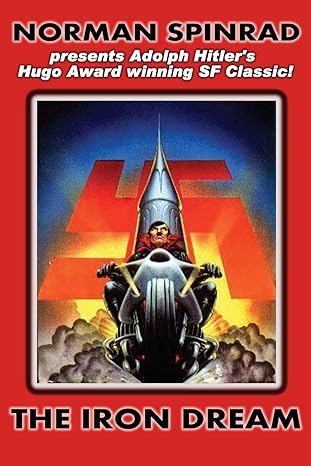
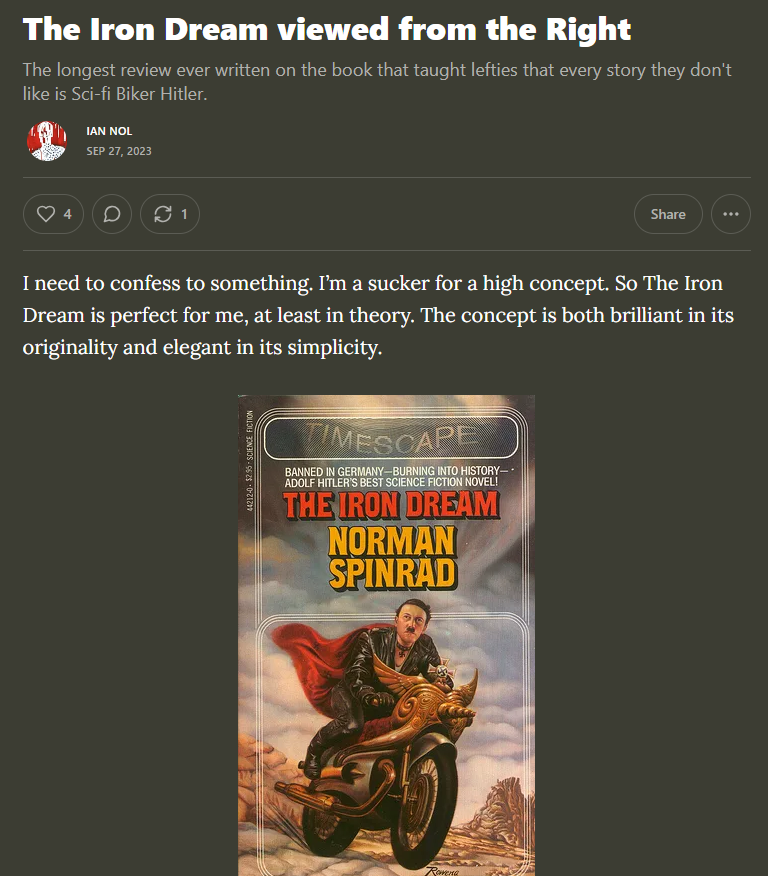
Ian Nol: The Iron Dream Viewed from the Right
Norman Spinrad was the prototype of today's very online Left:
Norman Spinrad is, or at least was when he wrote The Iron Dream, “that guy.” The one who says that evil races in fantasy represent minorities. The one who says that Goblin Slayer is a “Nazi show.” That guy. This was his main motivation for writing The Iron Dream. He thought that the pulp novels of his day were full of fascist and racist dogwhistles, and this was his way of critiquing them.
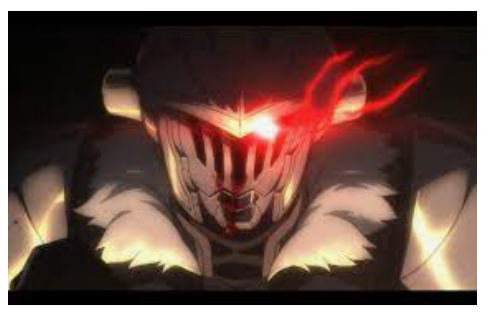
I do recommend you watch Goblin Slayer, with some caveats.
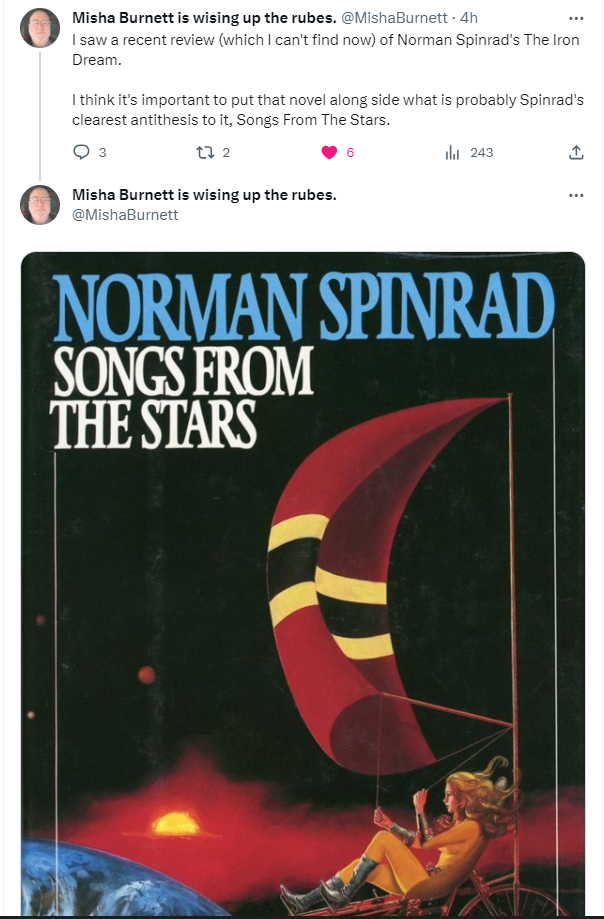
Misha Burnett tweets about the book Spinrad wrote as the antithesis to The Iron Dream, Songs from the Stars.
The main protagonist of Songs is Clear Blue Lou, who is a privileged luddite, a kind of travelling witchfinder who seeks out people using "Black Technology"--pretty much anything except wind or solar power.
He's the perfect Rich West Coast Liberal, spouting New Age jargon to justify his hedonistic lifestyle while avoiding any real work. He builds nothing, making his living by getting kickbacks from manufacturers to certify their product as properly "green".
He's sexually promiscuous, at one point having a threesome with girls from two feuding factions as a part of his negotiations. It was supposed to "strengthen the community" or something.
Clear Blue Lou is, in fact, far more of fantasy insert of Left Wing indolence and self-righteousness than the most musclebound barbarian is supposed to be of Right Wing power fantasies.
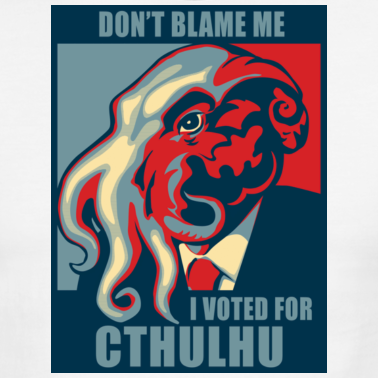
The Long View: President H. P. Lovecraft
John J. Reilly riffed off of The Iron Dream to write this alternative biography of H. P. Lovecraft.
Imagine an alternative history in which Lovecraft's ideas did not remain the stuff of pulp fiction. Suppose his father had lived, or he had been orphaned, or his family finances changed so that he had to go to work early in life. He becomes, let us say, a journalist in Boston or New York. He might then have fought in the First World War and returned with a distinguished record. He becomes a nationally syndicated columnist, famous for his warnings against the threat of immigrants, Communists, and unbridled finance capitalism, particularly as associated with the Jews. Like many practical people, life experience could have changed his reading about the occult from entertainment to belief. (It happens. Look at W.B. Yeats. For that matter, look at Hitler.) In the social catastrophe of the Great Depression, he would have had a unique opportunity to implement his ideas for revolutionary reform.

Thomas Kole: a portrait of Tenochtitlan
Tenochtitlan was bigger and grander than any contemporary European city when Cortez arrived. Here is a visualization at attempts to show us that.
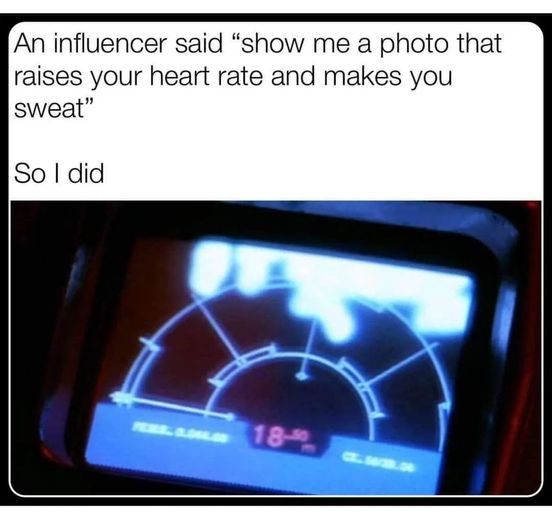
Remember, short, controlled bursts

Ed West: The Polish Way of Rebuilding
Urban renewal is possible.


Misha's Kvetch: Zionism for Aboriginal Australians
Another Misha looks at the discontents of Aboriginal Australians, and ponders what might actually help.
In a fairytale, a young woman is brought to a mysterious nobleman's castle to be his bride. But he has to leave for a whole and gives her the keys that will open every room in the estate.
— Moundshroud of the Snows (@KKalvaitis) March 27, 2023
On the condition that she not open one specific door.
That is forbidden. pic.twitter.com/10otSogFMj
This intentionally edgy inversion of Disney's Beauty and the Beast looks at the deep structure of stories, and how you can see hints of something else in many popular works of art despite the intent of the authors or writers.
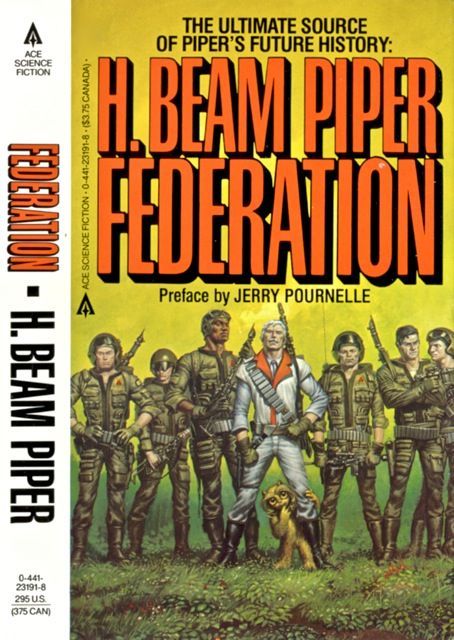
Federation is a collection of five of H. Beam Piper's short stories, curated and re-published by John F. Carr in an Ace Paperback edition in 1981. The book leads off with a preface by Jerry Pournelle, who knew Piper through science fiction fandom before Piper's suicide. Carr has an illuminating introduction, giving a short history of Piper's life and work.



Comments ()